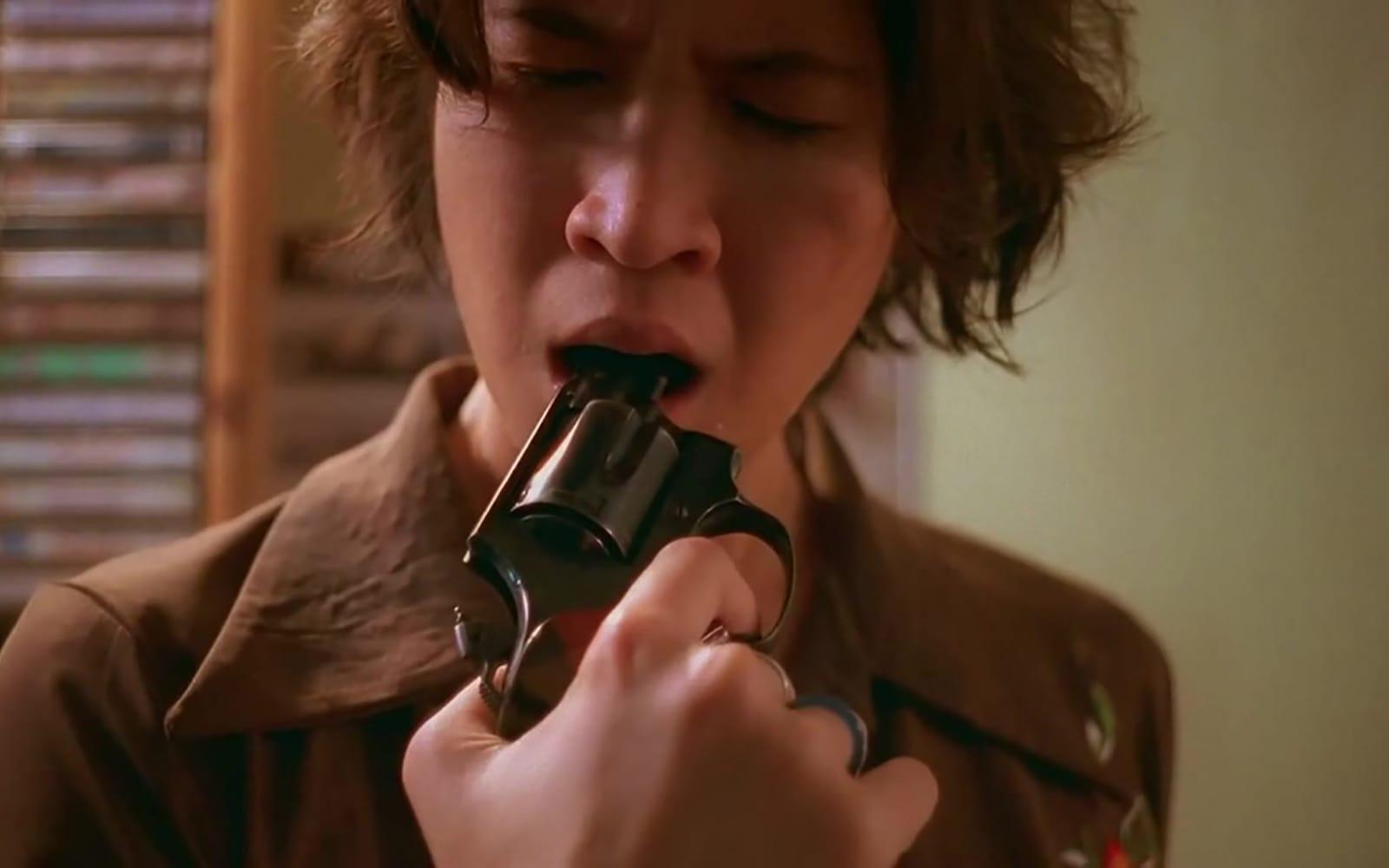6ixtynin9 by Pen-Ek Ratanaruang (Review)

Recent years have seen Thailand emerge as one of the most interesting and vital countries in Asian cinema. First came the Pang Brothers, whose stylish hitmen and horror films managed to take all of the cliches that Hong Kong had been running into the ground and inject new life into them. Then came the badass-ness that is Ong-Bak, which rendered action film afficianados senseless with the amazing — and wireless — stuntwork of Tony Ja, conjuring up all sorts of comparisons to the great Jet Li and Jackie Chan films of old. And now along comes writer/director Pen-Ek Ratanaruang, who might just be the world’s next Wong Kar-Wai.
Ratanaruang first rose to acclaim with his 2003 drama, Last Life in the Universe, a beautiful and haunting film about isolation and human relationships that was much in the same vein as Wong’s Chungking Express (not to mention Sofia Coppola’s Lost in Translation). Last Life in the Universe is actually Ratanaruang’s fourth feature, though. But watching his 1999 feature, 6ixtynin9, it becomes apparent that Ratanaruang is no flash in the pan, as his earlier material possesses the same style, attention to detail and character, and depth that made Last Life in the Universe such a solid film.
Tum (Lalita Panyopas) has recently been fired from her job at a financial company. Having no money whatsoever, she resorts to shoplifting to get her groceries, and even dreams about suicide. The following morning, she’s woken up by the sound of someone banging on her front door. Looking outside to see what the commotion is about, she finds a sealed box in front of her apartment — which just happens to contain a large sum of money. Of course, such things never come without strings attached, and over the next 24 hours, the once-timid Tum finds herself neck deep in bumbling gangsters, nosy police, fixed boxing matches, and a body count that continues to rise as she’s pushed to new extremes to cover up her trail.
As was the case with Palm’s release of Noi the Albino, I’m somewhat baffled as to the press quotes associated with this film calling it a “gangster comedy” and comparing it to Pulp Fiction. Sure, there are some quirky characters, a couple of humorous misunderstandings, and plenty of twists and turns. However, those expecting a riotous rollercoaster ride through the Thai underworld might be disappointed.
First off, keep in mind that this was done by the same guy who did Last Life in the Universe. As with his latest film, 6ixtynin9 is often surprisingly meditative, as the camera focuses on the struggle of Tum to maintain her wits and sanity and escape the situation with the money, even as she cleans up the bloody messes that constantly seem to appear in her small apartment.
The concept of fate weights quite heavily on the film. Early on, when Tum is laid off, her boss abdicates his responsibility, instead letting chance decide which employees are let go. After that, Tum decides to take chance into her own hands, going to any length necessary to protect her dirty little secret — with bloody and disastrous results. One little choice, one little lie, and it all goes downhill from there.
Although not as stylish or atmospheric as Last Life in the Universe, one can definitely see the seeds of that film’s style in this one. One of my favorite scenes takes place when Tum realizes that she must cut off someone’s leg so that she can hide the body. Using some brilliant lighting and a nice little twist, Ratanaruang does a splendid job of showing just how far Tum goes to rationalize her behavior. Also, like Last Life in the Universe, 6ixtynin9 uses music to great effect, from melancholy flute passages to upbeat rhythmic passages.
Despite having very little dialog, Panyopas gives a solid, yet subtle performance as a woman caught on a downward spiral. Once timid and shy, she soon becomes as cold and calculating as any hardened gangster — calmly purchasing huge bamboo crates in which to hide the body, preparing to stab her nosy neighbor without a second thought, threatening her best friend at gunpoint, etc. Much of the struggle takes place internally, and we can see it in Panyopas’ eyes and posture.
There are a few moments where the film gets a little too quirky for its own good, mainly involving a group of nosy neighbors convinced that Tum is having an affair, but it does a fine job of keeping you guessing as to what Tum’s final choice might be even as it gives you an honest look into the workings of someone slowly going over the edge. Again, those expecting some wild, Tarantino-esque ride will probably be disappointing. But those looking for something a little deeper, from what may be one of Asia’s rising cinematic voices, will definitely find something worthwhile in 6ixtynin9. But make sure you also watch Last Life in the Universe to see how Ratanaruang’s style has blossomed.
